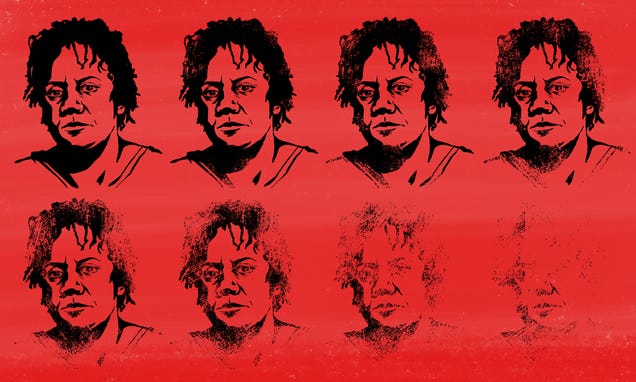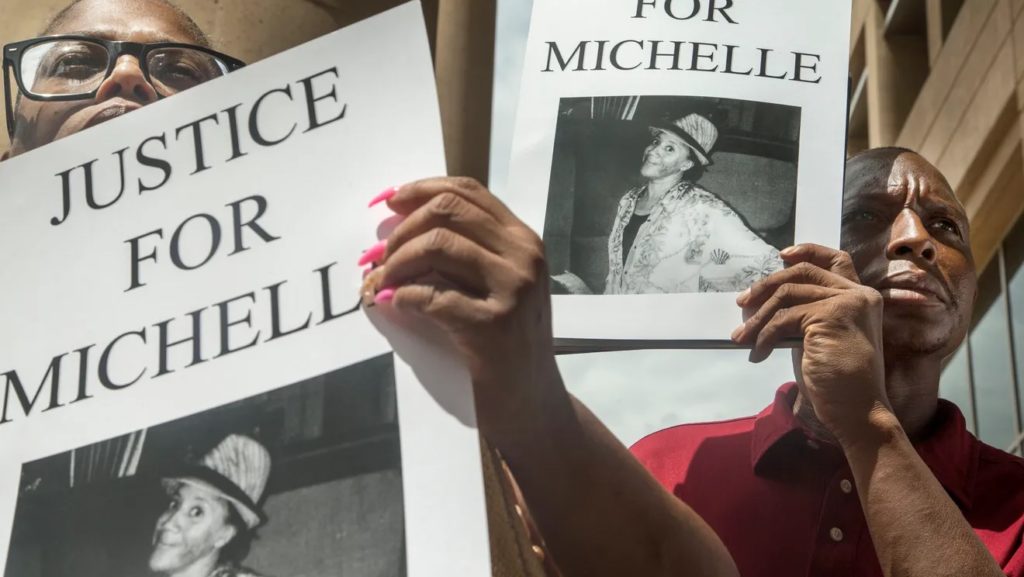
On August 14, 2014, just days after Michael Brown was fatally shot in Ferguson, a police officer in Phoenix, Arizona fatally shot Michelle Cusseaux, a 50-year-old Black woman living with bipolar disorder, schizophrenia, and depression. Michelle Cusseaux had called for a taxi to take her to the hospital. When the taxi didn’t show, she called her case manager. The case manager called the police to take her to an inpatient mental health facility. Four police officers came. Words were exchanged. Police took the door down. A few minutes later, Michelle Cusseaux lay with a single bullet in her chest. She died soon after. A week later, on August 22, activists carried Michelle Cusseaux’s casket to City Hall. The march was led by Frances Garrett, Michelle Cusseaux’s mother. Michelle Cusseaux’s body lies a-mouldering in the grave, but her soul goes marching on.
The Phoenix police knew why they were going to Michelle Cusseaux’s residence. They called Frances Garrett to determine if she had ever had a gun. She had not. They knew this situation. Their knowledge made no difference; their knowledge executed another Black women, another Black woman living with mental illness. Michelle Cusseaux’s death echoes that of Shereese Francis, in Brooklyn, in 2012.
Each time, the family mourns and calls for independent investigations. Each time, a mother stands up and asks, “Why?” Shereese Francis’s mother, Eleen Francis, faces Michelle Cusseaux’s mother, Frances Garrett. The nation is blanketed with Mothers of Mourning who had nowhere to go, who called the police to help them, and now …
“They knew. They knew, because of the orders, the orders to pick her up and take her in to a facility,” Frances Garrett explains. They knew, they knew. On March 18, 2015, Maricopa County Attorney Bill Montgomery said the killing of Michelle Cusseaux was justified. They knew, they knew, and they continue to know. #SayHerName

(Image Credit: Tara Jacoby / http://justice.gawker.com) (Photo Credit: Nick Oza / Arizona Republic )